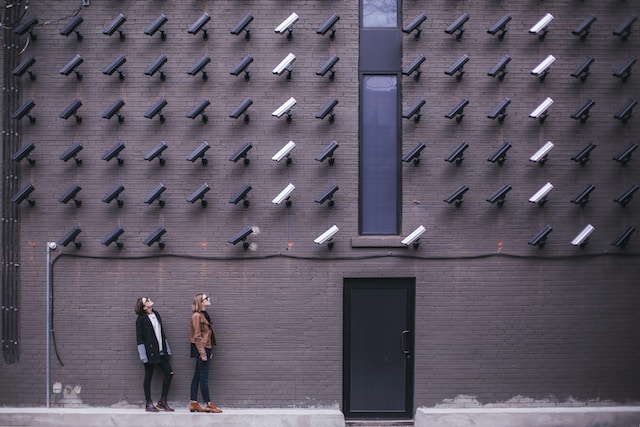
In Canada, there are rules called landlord-tenant laws that help landlords and renters get along. One big rule? Renters should have their privacy. Let’s break down what this means in easy terms.
Landlord-Tenant Law and Privacy
Everyone has a right to personal space in their residences. To ensure that renters can feel safe and secure in their rented areas, the legislation heavily emphasizes this fact. Although the property may belong to the landlord, the tenant will occupy it for the period of the lease. It’s not just wrong — it’s also against the law — to invade this person’s privacy.
Landlord-tenant law in Canada operates under provincial and territorial legislation, which means that rules and regulations can vary between regions. Nonetheless, certain core principles are common across the nation regarding tenant privacy. It’s important to note that the origins of these privacy laws were largely influenced by the Canadian Charter of Rights and Freedoms, which inherently promotes respect for individuals’ privacy.
- Entry Rights: Typically, landlords have the right to access a tenant’s rental unit for specific purposes, like necessary repairs, routine inspections, or showcasing the unit to potential tenants or buyers. Yet, the paramount requirement here is providing adequate notice, which usually stands at 24 hours, unless it’s an emergency. This notice period is in place to protect a tenant’s fundamental right to privacy within their rented home. Additionally, the notice should be written, stipulating the reason for the visit, the day, and the time of entry.
- Privacy Rights: Tenants’ rights to privacy include the right to live in peace and security inside their rental home. Landlords are specifically forbidden from interfering with a tenant’s reasonable use of the property. The idea of quiet pleasure is fundamental to landlord-tenant law. This indicates that a renter has the freedom to use and enjoy the rented space without the landlord’s interference. Noise is only one type of interruption; it also includes unexpected visitors and unannounced inspections. It’s also noteworthy that tenants have the right to secure their rental space, using locks or security systems, as long as it doesn’t breach the terms of the lease.
- Maintenance and Repairs: Landlords are responsible for keeping the rented property in excellent condition. However, even if repairs or maintenance are required, landlords still need to give notice before entering the property, unless an emergency arises. Tenants must provide access to these repairs, but their privacy must still be respected. In cases where extensive repairs are needed, arrangements might be made for temporary relocation or rent reductions.
When is a Landlord Allowed to Enter?
While a landlord cannot just walk in at any time, there are some circumstances where admission is allowed:
- Routine Examinations: The property may be inspected by the landlord, but only after giving at least 24 hours written notice. This notification must include the date, the entry time, and the purpose of the visit.
- Emergencies: Landlords have the right to enter a rental unit without prior notice where there is a danger to the tenant’s safety or probable property damage.
- Repairs: If the resident has asked for repairs, the landlord may enter the home to make them as long as they’ve let the tenant know what they’re going to fix and when.
Real Estate Law and Tenant Privacy
While real estate law governs the buying and selling of properties, it can often intersect with tenant privacy in several significant ways:
- Property Disclosure: Sellers bear the responsibility of disclosing specific information about the property, including any known defects or issues. While this primarily serves the interests of prospective buyers, it can also have implications for current tenants. Failure to disclose issues that directly impact a tenant’s privacy or well-being can potentially lead to legal repercussions.
- Tenant Agreements: Real estate transactions can significantly affect tenants if a property changes ownership while they are amid their tenancy. Tenants typically maintain their right to stay in the property until their lease naturally concludes. However, they should be kept informed of the sale and the rights they have throughout this transitional phase. Additionally, their security deposits and prepaid rents should be transferred appropriately to the new owner.
- New Ownership: In cases where a rental property changes hands, the incoming landlord must observe and honour the pre-existing tenancy agreements, including those that pertain to privacy and access to the rental unit. A comprehensive understanding of these rights and responsibilities is essential for both landlords and tenants during such transitions.
- Setting Boundaries with Technology: As technology advances, issues such as surveillance come into play. The use of security cameras by landlords, for instance, can blur the lines of privacy. Real estate law mandates that any surveillance system in a rental property must not infringe on the tenant’s privacy. Cameras in private spaces like bathrooms or bedrooms are a strict no-go. This also extends to smart devices, which should not be used to monitor tenants.
- Legal Remedies for Privacy Violations: If a landlord persistently violates a tenant’s privacy, there may be legal repercussions. This can take the form of fines or legal actions, depending on the province and the severity of the breach.
- The Privacy Balance in Shared Spaces: In properties with shared spaces, like shared laundry or communal gardens, the lines of privacy can often get murky. Landlords need to define clear boundaries and rules that respect everyone’s rights and privacy in such scenarios. This includes setting clear timings for common areas and ensuring noise levels are kept to a minimum during quiet hours.
In conclusion, tenant privacy is a legal obligation. By understanding and respecting the landlord-tenant law and real estate law provisions related to privacy, landlords and tenants can ensure a peaceful coexistence
Back to blogs